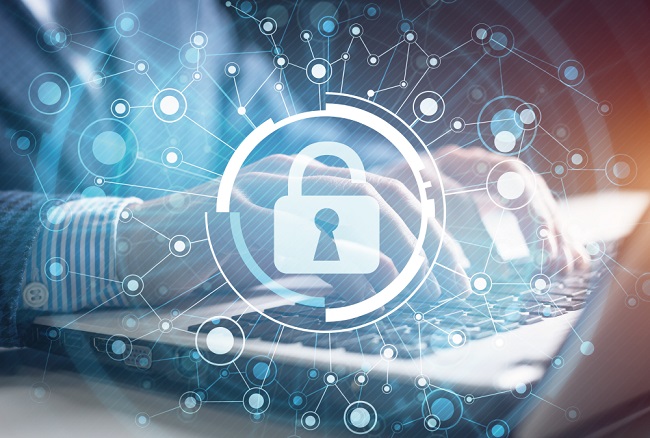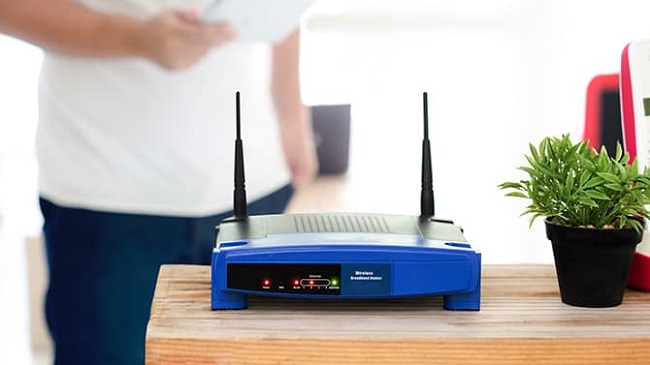Even if you’re using an ethernet cable to connect your desktop computer to the internet, that same modem is bound to have WiFi. This is the way you keep your smartphone, tablet, and laptop connected to the internet.
In any guide about cybersecurity or in any BYOD policy, you’ll always hear the same piece of advice – don’t connect to the WiFi you can’t recognize, and always use VPN.
However, what they rarely tell you is that others connecting to your own WiFi can be just as dangerous. Here are a few reasons why it’s so important to keep your Wi-Fi secure.

You Could Get into Some Legal Trouble
One of the first things you need to take into consideration is that we live in a world where sharing some links and even expressing some opinions can land you in legal trouble. Now, online, everyone is shrouded by the veil of anonymity, but this shield is not nearly as impenetrable as you would expect it to be.
You see, because people use usernames and not their real names on most platforms (especially when doing things that are too extreme), the authorities are looking at things like IP instead.
So, someone using your WiFi would have your IP and it would be near-impossible for the authorities to establish that it wasn’t you. Then, a topic that we would rather not have to mention but that we just can’t skip while on the subject matter.
Some types of content will land you into a lot of legal trouble (especially if it includes real-life gore or minors). The thing is that if someone uses your WiFi to upload these and this gets to authorities, you’ll have a hard time proving that it wasn’t you.
Here, it goes beyond just legal trouble; your entire reputation could be ruined. Even if you manage to prove that it wasn’t you, there will always be people who will doubt the authenticity of this story.
Just look up The Hunt (2012) to see how some accusations are so vile that they sometimes act as proof on their own.
How often does this happen? Well, let’s just put it this way: do you really think that people uploading this type of content do it via their own devices, WiFis, and IP addresses? There’s just no scenario in which this is the case.
It’s a Massive Invasion of Your Privacy
With just a bit of research, you can easily learn how to see the activity on your WiFi. Well, if you can do it, so can others.
Why is this a problem?
Well, apart from the obvious – the fact that a lot of people can see what you’re doing online, this has a huge potential for blackmail.
We all know the joke about the best friend’s pact to delete each other’s browsing histories, and this is not something that was just invented for the laugh of it. People look up things which, even if not immoral or illegal, they wouldn’t want other people to see.
Everyone’s browsing history is their own private thing.
Second, you don’t want your chats to be revealed. Let’s be honest; we all have that one group chat that, if leaked, would cause a massive upheaval. Some gossip should never see the light of day, and there are some thoughts that you reserve only for people whom you trust the most.
It’s not necessarily even insulting; these could just be internal jokes that would look bad when taken out of context. You don’t need that, which is why you want to protect your WiFi.
With so many people working from home, there’s even a risk that someone will access your work files and put you in a sort of awkward spot. Data theft is always serious, but when it’s not your own IP, it could cause unpleasantness, legal consequences, and even loss of a job. This is something you need to learn how to avoid.
Bandwidth Hogging
When we say that someone could use your internet and that the big problem with this is the fact that they’re slowing you down, this might not sound as serious. This is because you’re probably just imagining someone logging in to watch YouTube or browse social media.
Well, what if they logged in to download terabytes of data? What if this process worked day and night? Since you don’t know what they’re downloading, this could be a scenario described in the first section, putting you at legal risk and slowing down your internet.
What if they are in the neighboring building with a lot of rigs using your internet connection to mine Crypto? You would be amazed to learn just how much this can slow you down. Now, there’s a bit of an ethical principle here, as well. You’re paying for the internet, not them.
It would be like if someone moved into your apartment, ate your Food, used your bed and your shower without ever contributing a cent toward rent. We’re not talking about a family member, a friend, or even an acquaintance.
We’re talking about somebody completely unknown, just taking advantage of you. It’s wrong; it’s exploitative, and you shouldn’t put up with it. Also, keep in mind that you’re entitled to all the bandwidth that you’re paying for.
An argument could be made that, as long as you’re not noticing any difference, there’s no harm done (although this, too, is pushing it). Still, once you see a significant decrease, this is a huge problem.

Regulatory Violations
Your internet providers are aware of all the hazards we’ve listed so far. This is why, in some jurisdictions, you’re obliged to have a WiFi password, even a strong WiFi password installed.
If you fail to do so, this might violate your agreement with your internet service provider, and they might end up with the right to sue you. As we’ve already said, there are a lot of reasons behind this.
First of all, the ISPs don’t want their network to be used for any illegal activities. Second, they want you to receive the full bandwidth that you’re paying for.
You see, if you notice that the speed is lower than you’ve paid for, you might get into a heated argument with their customer service, even drag them into a long and arduous legal process.
The risk of this is a lot lower if you were just to keep your WiFi safe, and while a password may not do this on its own, it’s a start.
Read Also:
Keeping Your WiFi Safe Keeps You Safer in a Digital World
As you can see, keeping your WiFi unlocked puts you in more danger than you originally thought. Even if you trust your neighbors, you can never know if someone just parked outside or walked past your house with a device. Also, how well do you know others?
We’ve already mentioned the idea of your chats and search history leaking, so how many people would be surprised by what’s leaked? Others have such secrets, as well. Assuming someone’s innocence and good intentions is outright dangerous.



















